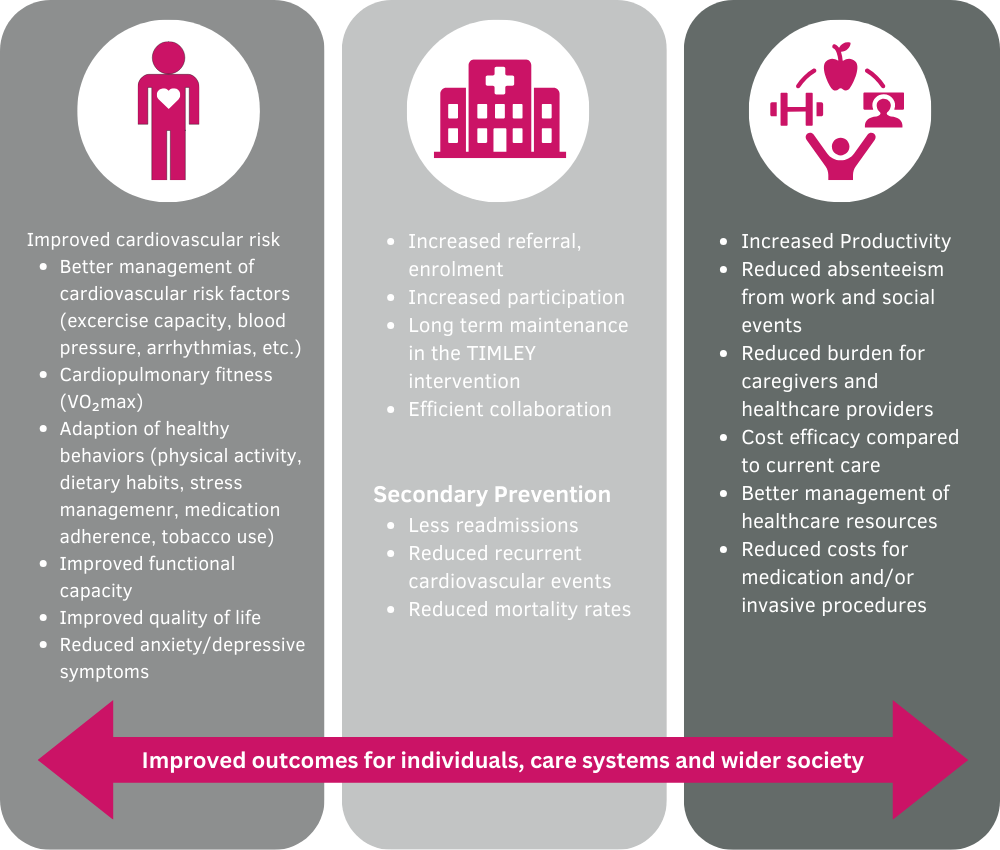The Potential of TIMELY.
Expected Impact
TIMELY holds potential to lower the direct impact of coronary artery disease (CAD) on the health care system by reducing recurrent events and hospital readmission rates and will provide a platform for efficient collaboration between clinicians. TIMELY may reduce the burden to the wider society through lowering of comorbidity rates and better management of healthcare resources as well as by increasing productivity and workability.


